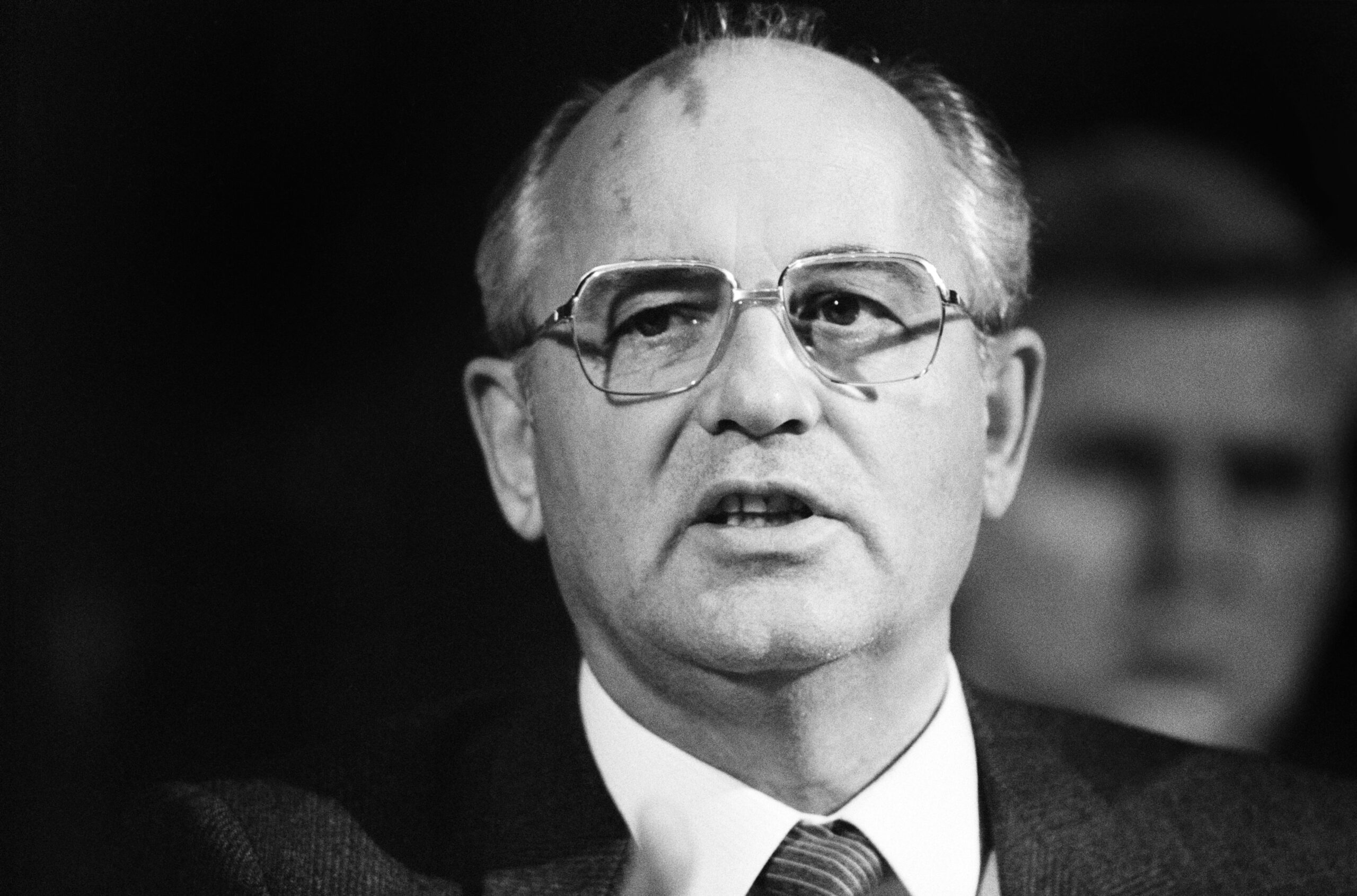
Mikhail Gorbachev risked everything. Neither Russia nor the West could live up to his vision.
August 2022
Mikhail Gorbachev left us as his country and the world are returning to the abyss that he desperately wanted to avoid. Just imagine the bitterness and pain he had to endure seeing his hopes shattered. He had dreamed of a safer world that would reject the use of military might. He had dreamed of the Russian people enjoying freedoms they hadn’t known before. But he left us just as the world teeters on the brink of confrontation and Russia has again become a hostile fortress.
He could have ruled until today, becoming the newest Brezhnev. Nothing had endangered his power, but he decided to take a gamble for peace. This was not the Russian roulette that Kremlin leaders have always loved to play, teasing the world and testing its adrenalin. Gorbachev had a different project in mind: presenting to the world a Soviet Union with a “human face.”
Gorbachev was the only contemporary leader who singularly changed the world’s trajectory. He buried communism. He ended the Cold war. He dismantled the U.S.-Soviet standoff as the foundation of the world order. He gave freedom to Central and Eastern Europe. He offered Germans a chance to unite into one state. (How London and Paris tried to prevent this!) Gorbachev was the first Russian leader who had the courage to reject the pillars of a personalized political system — coercion, militarism, and the drive to dominate other nations.
Gorbachev created a triad of reforms: greater official transparency (glasnost), economic restructuring (perestroika), and transitions to democracy (demokratizatsiia). He not only undermined the Soviet tradition but he challenged the West. First, he came to the conclusion that military might was too dangerous an instrument, especially when you have nuclear missiles in your pocket. In 1986, he offered the idea of the “non-nuclear peace” — long before President Barack Obama did the same. Second, he declared that every nation has a right to make its own choices. This was shocking even for the West, which was still pursuing Realpolitik policies to justify its areas of influence. Third, he gave freedom to a Soviet society that was comfortably enchained. A product of the Soviet tradition himself, Gorbachev shocked the world by throwing that tradition into the dumpster.
Gorbachev gave the Soviet Man a chance to oppose the authorities without fearing revenge. He rejected rule based on subjugation. He used to say, “I did not want power for the sake of power, and I did not want to dictate my will to anyone.” For Russia, it was a blasphemy. Russia had never had a leader who weakened himself to strengthen others.
Gorbachev enters history as a tragic figure. He changed the world order. But for decades the world did not know how to manage the changes he brought. He liberated his own country only to see the forces that he unleashed expel him from the political scene.
Some will say, “You idealize the man.” What about the bloodshed in Baku, Tbilisi, and Vilnius? Indeed, Gorbachev failed to contain the totalitarian logic. But he avoided bloodshed in Moscow, and this was his blow to the monster-system.
In the end, Gorbachev understood his dilemma: For the USSR to be preserved, a tremendous amount of blood would need to be spilled. He was not ready for that. He would not accept that. Instead, he let the house of cards collapse. He killed the Soviet leader inside himself before he let the defense of the Soviet Union kill so many.
Now, in Russia, one hardly can believe that Gorbachev’s perestroika had ever happened at all. The ruling establishment has succeeded in rebuilding everything that he dismantled.
For decades, this lonely man has stood as an antithesis to the current regime, to its mentality and way of life. He reminded the regime about the times it wanted to forget. He has been viewed as a renegade and historical mistake. The memory of glasnost, of his rejection of the use of force and nuclear blackmail, of his decision not to fight to stay in power — all this made him an alien to Russia’s political elite.
His partners and interlocutors passed long before him — Reagan, Mitterrand, Thatcher, Kohl. One could only imagine what Gorbachev thought when he walked around his dacha alone, without his wife, Raisa (d. 1999). He was mentally sharp and on top of world developments. What did he think about Russia’s return to the state that he had tried to change?
He gave Russians a chance to learn to talk, disagree, argue, and fight, and to criticize the Kremlin. He gave us a chance to dissent and to oppose power without fear. He had nothing to be ashamed of. He had nothing to hide. He did not need to run from his country. He could proudly say to himself: “I tried.”
We failed to use the chance he gave us. This was not his fault. But the fact that we had the chance means that we are still not hopeless.
Not long ago, during the pandemic, I called Gorbachev at the hospital and lamented that everything was dark and filled with gloom. He told me in a stern voice: “Stop whining! You have to be strong!”
Now I am repeating those words, looking for his strength.![]()
Lilia Shevtsova is the author of Interregnum: Russia Between Past and Future (2014) and Putin’s Russia (2010).
Copyright © 2022 National Endowment for Democracy
Image Credit: Bryn Colton/Getty Images
